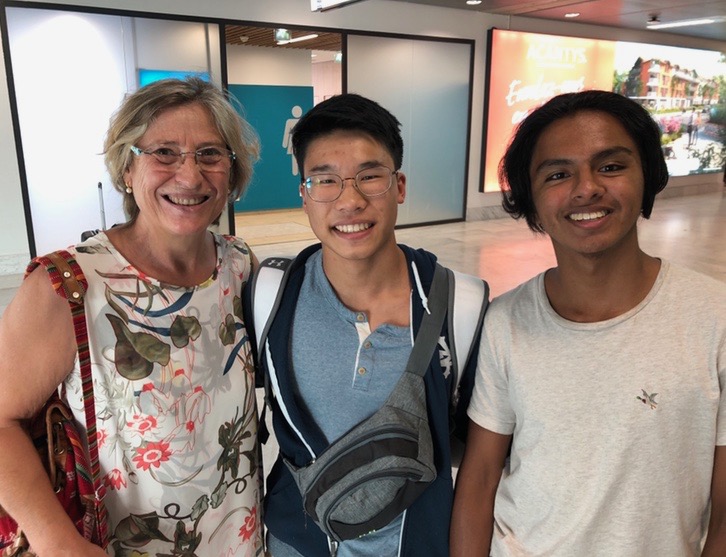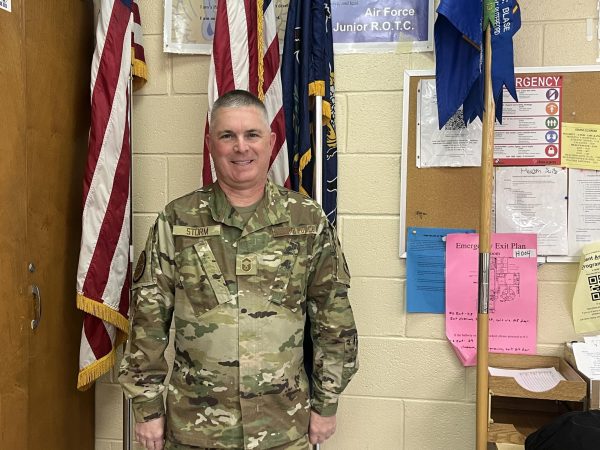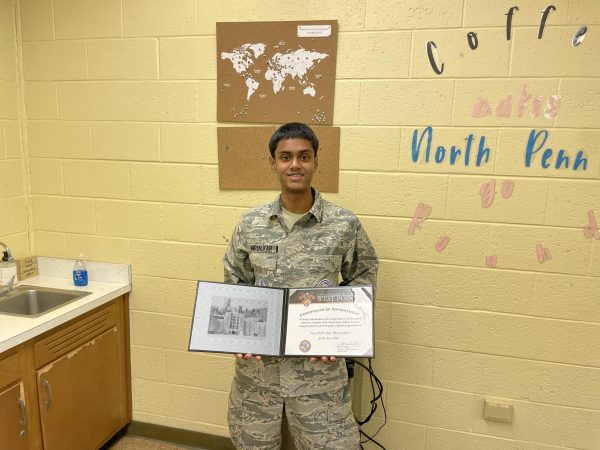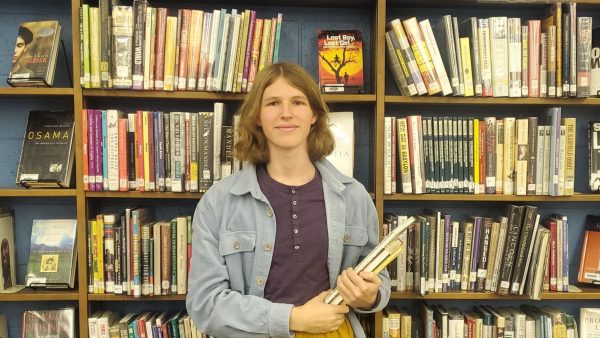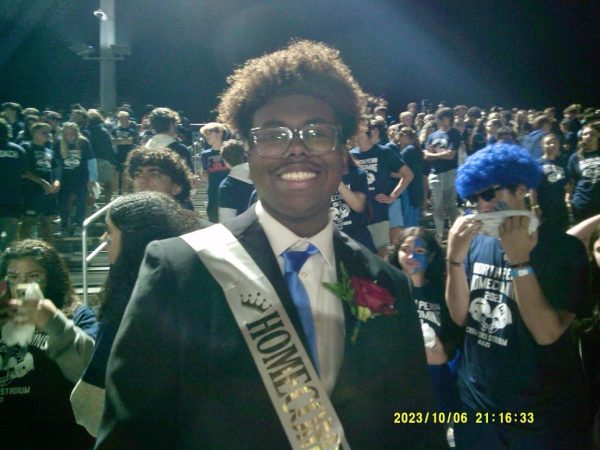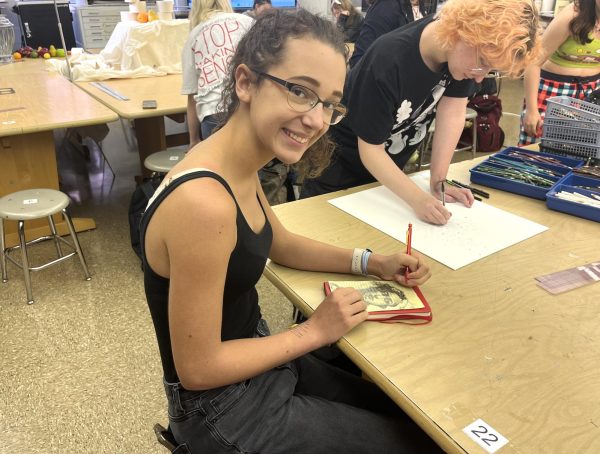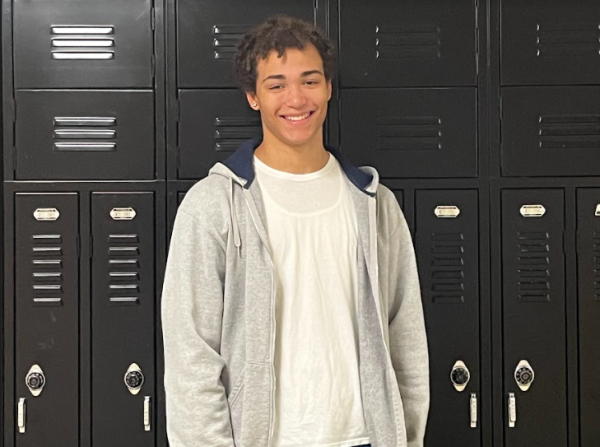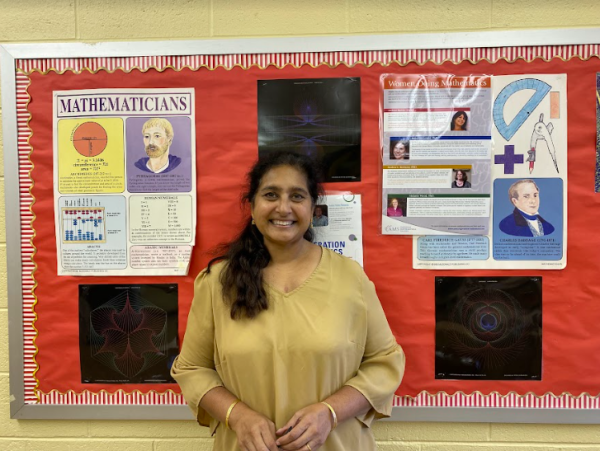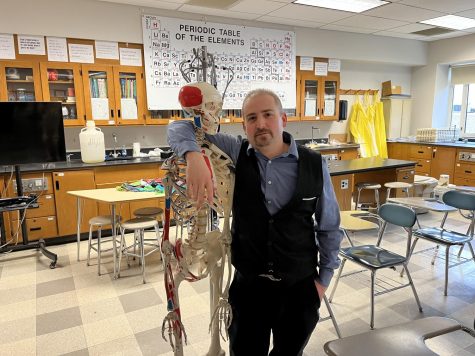A short but life-changing experience: Ryan Heng reflects on his trip to France
TOWAMENCIN — The day was coming to an end and the high school was full of exhausted athletes who were preparing to head home. It was Valentine’s Day, but for North Penn junior Ryan Heng who was a sophomore at the time, it was just another volleyball practice completed. It was also the moment he found out that he got accepted to study abroad in Toulouse, France during his junior year.
Heng wanted to study abroad to be bilingual and to immerse himself in a different culture. Prior to coming to France, he would often practice French at home with his dad who spoke Canadian French and he watched French movies and TV shows.
When he arrived in France, despite his prior efforts to familiarize himself with what he was about to encounter for the next few months, it was still a culture shock.
“When I first got there, everything was very new. One of the French cultural differences is that they do what they call ‘la bise’ which is where you give two kisses on each side of their cheek. We learned that in school, but I completely forgot about that, so everyone’s coming in to kiss me and I’m like, ‘what the heck is happening.’ That was just one of the biggest things that I noticed there, and after a while, I got used to it and started doing it back,” Heng said.
Heng actually had two host families. In his first family, there was one son with a single mother. The family was very close, but he also had a lot more privacy because the family was small.
“In their backyard, they had some sort of cabin. There, I had my own bedroom, bathroom, and living room. Technically, I had my own kitchen, but I would go to the main house to eat. We would go out to walk a lot and it was very nice,” Heng said.
His first one wasn’t the best match, but his time with them was still spent well. He moved in with his second family around Halloween. Originally, he was supposed to stay with them for two weeks because they were his temporary family before he was put with his permanent host family.
They decided that they wanted to keep me for the rest of the year, so that made me really happy and wanted.
— Ryan Heng
“At the end of those two weeks, they decided that they wanted to keep me for the rest of the year, so that made me really happy and wanted. It was really reassuring. With them, We went to so many families and had so many good memories. There was a mom and a dad, a 6-year-old daughter, and a 14-year-old son. They also had a 20-year-old daughter who didn’t live with them anymore and a 25-year-old son who was married and also didn’t live with them anymore,” Heng said.
“My host mom didn’t go out to work, she could stay home at work. She was able to occupy us a lot. She was always trying to find activities for us to do,” Heng said.
The transition from English to French was initially a work in progress. Everyone there wanted to practice their English, but he wanted to practice his French.
“Everyone would speak to me in English and I would speak to them in French. If I didn’t know how to say something, I would say it in English. Most of the time, they would understand. It would be the same thing for them; if they didn’t know how to say it in English, they would say it in French. Around the time as I was getting more fluent, in December, my listening got a lot better and I was beginning to understand what people were saying. Around late December to January, that’s when my speaking started to pick and that’s when I could fully express myself,” Heng said.
He didn’t necessarily forget English, despite speaking French more often than English. He sometimes forgot a few words, but didn’t notice much of a difference.
During his first week, he visited the countryside and stayed at the house his first host family owned.
“It was really peaceful. The countryside is very beautiful,” Heng said.
He also had to begin school that same week. When he started school, he noticed how different the system was compared to the schools in America. His schedule was similar to a college schedule where some days, school would start and end at different times. For instance, on Mondays, school could start at 8 AM, but on Tuesdays, school could start at 9 AM. End times could range from noon to 6 PM. On Wednesdays, however, students would finish at 1 PM. Sometime in the middle of the day, they would have a 2-hour break for lunch. On average, a school day would last for 5 hours.
“Every day was different. You would have different classes and you’d be in school for a different amount of time. Classes were 55 minutes long unless they were next to each other in which they would be 2 hours long. The teachers and the students would have to switch to their next class which is a little inconvenient. On our schedules, they would give us the time and the room and the teacher and the class would have to go to that room. Teachers don’t have a specific room and students don’t have a specific room,” Heng explained.
Every day of the week was different, but every week was the same. For example, every Monday would be the same but Mondays and Tuesdays would be different. They also had a system that was similar to the letter system at North Penn. There would be a Week A or a Week B where one week could differ in schedule from the other. There could be a class where you could take it once every two weeks.
In the French school system, they had subjects that were related like math and science go into a pack system. For Heng, he was in a math pack, so he took physics, chemistry, math, life and Earth science which were his majors, but also philosophy, history, English, and German which were minors. The packs are made for juniors and seniors, and Heng was considered a senior there.
“They have something called the bac (baccalauréat) which is their equivalent to getting their diploma, but they have to pass a really long test. The packs tell colleges that this person got the math diploma or the economy diploma. You get to choose your major when you’re a junior,” Heng explained.
Although students had to travel to their next class, everyone would attend the same class because they would share the same pack. They would share the same class for the rest of the year. There were about 30 kids in his class and roughly 3000 kids in his school, but his school consisted of students in their freshman year to college students. Not all 3000 students were in the building at once.
His school didn’t have a specific dress code, however, many students were already very well dressed. Many girls carried handbags instead of backpacks. Boys would wear backpacks.
Every student would also eat the lunch the school provided and if they didn’t, they would eat at home.
“For the school lunch, you would get your appetizer, your main meal—they usually gave fish if you didn’t eat meat—they would have their main meat meal, and then their grain dish with rice on the side. You can get your dessert. Everything was just more than what they would serve you in America. They also have silverware and glass cups and the plates were a lot nicer,” Heng said.
One of the things he thought was interesting was the fact that students got to pick the sound for their school bell. They would give the students a selection of songs and around December, they got to choose. When 2020 began, the bell changed.
He enjoyed the long breaks he got during the school day because it gave him the freedom to do what he wanted to do.
“You could leave school, walk around the city, go home, or do whatever, and then you would come back to class at the end of those 2 to 3 hours. It was kind of liberating,” Heng said.
It was kind of liberating.
— Ryan Heng
As for making friends, Heng met many of them in his literature class. To this day, he still talks to them and they occasionally share memes.
Outside of school, he would spend time hanging out with friends. At school, they only had clubs for sports, so he didn’t spend much time participating in after school extracurriculars other than volleyball because the school didn’t offer many things to do.
Unlike back at home where he would attend school, stay after school for volleyball practice, go home to eat and spend time with his family and have that same routine daily, he would have something different each day in France. Some days, he would wake up early and other days, he would sleep in. He also didn’t receive as much homework as he would in America which would allow him to get it done quicker and spend more time with his host family.
They would have dinner ranging from 7 to 9. Before every meal, the family would sit and say bon appétit which was new to Heng because he never had to say any sort of phrase before a meal. With every meal, it came with wine and even the kids would get it. To Heng, it stood out to him because it was nothing like what people would do in America.
Whenever the family would come home from somewhere, they would put their shoes in a cubby and put on slippers. In France, it was very common.
Dealing with the long distance from his friends and family wasn’t much of a problem at first. But after a while, it started getting a little hard.
“That’s when my family and I started to call every Friday night. That made it not as bad. At around Halloween, it was a little tough. Around Christmas and New Years, it got really hard. But I made it through. I would call and text my mom enough, so it wasn’t too hard,” Heng said.
Heng loved being independent in France.
“Since it’s a city, you can basically go anywhere without having to drive anywhere. You can basically do whatever you wanted with your friends. I felt very independent. Sometimes I would go alone and it would be nice to see everything and take it all in. I loved seeing this whole different culture and appreciating the fact that I’m able to have the chance to do that,” Heng said.
I felt very independent. Sometimes I would go alone and it would be nice to see everything and take it all in. I loved seeing this whole different culture and appreciating the fact that I’m able to have the chance to do that.
— Ryan Heng
“The thing I loved about my city was the fact that it was a city. I could basically go anywhere,” Heng added.
At first, he thought the food tasted bland mostly because in France, they enjoy tasting the natural flavors of food.
“After a while, I really started to enjoy it more. It tasted really good. For example, in salad, they would put oil and salt and that would be their dressing. We would always have bread with every meal and cheese. You would start with an appetizer which would be bread and pâté and then you would have your main meal. After, you would have salad and your bread and cheese. Then you had your dessert,” Heng said.
During his birthday, his host family decided to take him to a lantern festival.
“You would walk in and all these lanterns everywhere were decorated beautifully. It would have pictures and you would walk through it. It was like walking through heaven,” Heng said.
It was like walking through heaven.
— Ryan Heng
Holidays were spent relatively the same. On Christmas, his host dad dressed up as Santa Clause because his daughter still believes in him and he thought it was something nice to do for her.
“He pretended like he was going around in the streets and then he came to our house and left a whole pile of gifts,” Heng said.
His second family’s oldest daughter was also a part of the choir, so they often went to her concerts. During the breaks they had during the year, they went to different towns and visited their beach house which was a two hour drive away.
“It was really cool to see their architecture. Everything seems a lot older which was really beautiful in a way because there were so many arcs. It just seemed very old-fashioned,” Heng said.
Since he was staying in the southern part of France, he didn’t get to visit other tourist attractions like Paris to see the Eiffel Tower.
“I kind of felt like a tourist walking through the city though. The roads and architecture are very old-fashioned. When you walked in, it was very modern, but on the outside it wasn’t like that,” Heng said.
He also got to visit Haute-Garonne and went to the river that was there.
“There are these bridges crossing in and it’s especially pretty during the sunsets because there are so many vibrant colors. It really outlines the bridges along with the water. That was one of my favorite places to go,” Heng said.
In January, when people began to talk about COVID-19, it wasn’t a big deal or something that was often talked about. By February until March, as it started to get worse, more people began to talk about it and people were wearing masks to school. However, in Toulouse, there weren’t many cases. During the second week of March, the president broadcasted a livestream for the whole country and called for all schools to be closed starting the next week.
“Originally, it was supposed to be 5 weeks. The teachers had one day to get themselves together and tell the kids what to do which did not go very well. Around that weekend, we used an app to have video calls for our classes. We thought that we would come back after 5 weeks. We were wrong,” Heng said.
We thought that we would come back after 5 weeks. We were wrong.
— Ryan Heng
“We were supposed to take these really bigs tests on the first week of online classes. It was very disorganized because we didn’t know if we had to take them or not. We ended up still having to take them,” Heng added.
For the most part, the situation wasn’t that big considering that not many people in his city were affected. But when everyone had to go into quarantine, Heng’s parents decided to bring him home.
“At first, I was mad because I don’t think anyone would have wanted to have their experience get cut short. Over time, I thought about it and I felt accomplished in what I’ve done. I’ve basically become bilingual, I’ve experienced their culture, I made a second family, I made all these friends. I thought about it in a positive way and I’m proud of what I was able to get done,” Heng said.
I thought about it in a positive way and I’m proud of what I was able to get done.
— Ryan Heng
On his last day, his host family had a special dinner for him. He made a card and gave them pictures. The also celebrated Easter before he left. He and his host brother also pulled an all-nighter to watch movies.
When he got back home, like everyone else, he immediately went into quarantine. He transitioned into doing online learning that North Penn offered him which gave him two semester classes.
Despite leaving France so soon, he still cherishes all of the opportunities he had in the amount of time he was able to be there for. His trip was a life-changing experience.
“It changed me in a better way. Everywhere in the world, there’s a different culture, and you can’t exactly know what it’s like until you experience it,” Heng said.


